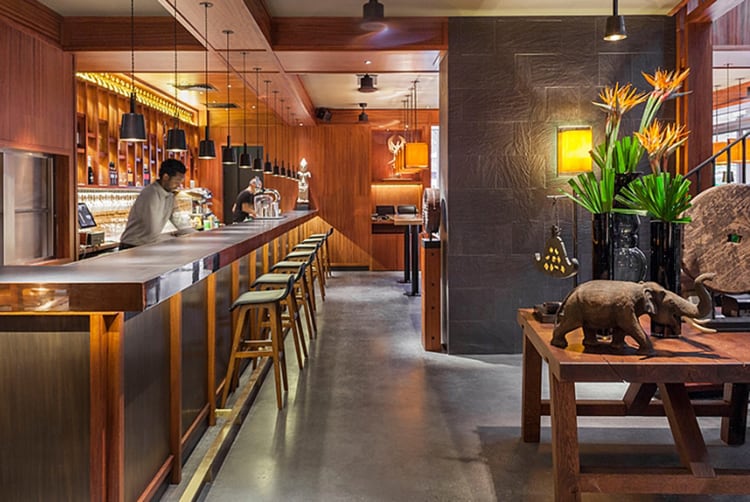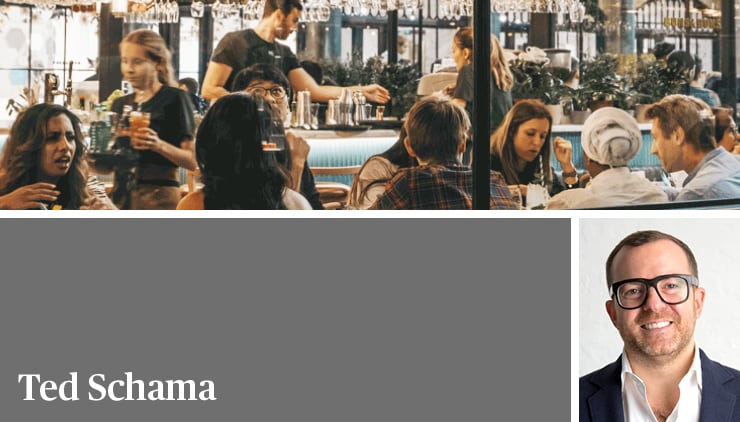There is no single narrative for UK hospitality in 2025. The sector is no longer simply recovering, nor universally struggling — it is dividing. Some brands are scaling up with clarity, discipline, and global intent. Others, bruised by high costs and past overreach, are slimming down or restructuring. But perhaps the most telling development isn’t the distress — it’s where the money is going.
Hospitality is undergoing a great split between those who are scaling and those who are being strategically rebooted. And both sides are drawing capital.
At the front of the growth curve are operators like Hawksmoor, Dishoom, Lina Stores, and JD Wetherspoon — businesses that have not just weathered the storm but refined their models to grow. Hawksmoor’s US expansion continues apace, with New York posting £6.4m in turnover in its first year and turning a profit. A new site in Chicago opened in 2024, and more US cities are in the pipeline. The brand’s rise has been anything but rushed — it is built on deep operational discipline and consistent delivery.
For investors with global ambitions, the logic is clear — labour shortages, cost pressures, and tax burdens make the UK a tougher market to grow in without radical efficiency or pricing power
Dishoom remains one of the most envied premium-casual concepts in the UK. Each site turns over well in excess of £6m, and regional launches in Birmingham and Manchester have confirmed the brand’s resonance well beyond London. With just 11 sites under its core brand and four Permit Room offshoots, this is a business that doesn’t rely on scale, but on depth.
Meanwhile, Lina Stores, backed by White Rabbit Projects, is turning heads with its international pivot. Now operating 11 UK sites, it recently opened in Tokyo. Chris Miller, founder of White Rabbit, has been direct in his rationale: “International expansion is more attractive than domestic growth right now.”
For investors with global ambitions, the logic is clear — labour shortages, cost pressures, and tax burdens make the UK a tougher market to grow in without radical efficiency or pricing power.
JD Wetherspoon, often dismissed in premium circles, continues to thrive at the other end of the market. It posted a 21% increase in like-for-like sales and £36m in pre-tax profit in the first half of 2024. Founder Tim Martin’s long-term bet on freehold property and relentless value delivery has insulated the business in a way few others can match.
Yet the more surprising story lies not in the high-flyers, but in the brands that faltered and are now being backed for a comeback.
Busaba and Gusto - restructured and repositioned
Busaba, the Thai restaurant chain founded by Alan Yau, entered administration in July 2025 — but it didn’t stay there long. It was swiftly acquired in a pre-pack deal by Seaco Investments, safeguarding 240 jobs and all seven remaining restaurants. Administrator Neil Bennett said: “Busaba has experienced tough trading conditions… including the negative consequences of the cost-of-living crisis, inflation and a substantial increase in utilities costs. The pre-pack sale… has saved a long-standing London Thai restaurant along with hundreds of jobs.” The buyer’s belief? That Busaba’s brand equity is intact and that with a tighter estate and renewed focus it still has legs.

Gusto followed a similar path. After years of ambitious growth and a £2m crowdfunding round, the brand faced insolvency last month. It has now been acquired by Cherry Tree Investments in a deal that will retain seven sites and over 300 jobs. Six underperforming locations will close. Gusto CEO Paul Moran said: “We are profoundly sorry to see six of our restaurants close… This investment marks an important step forward for Gusto… ensuring the future of the business and putting in place a strong and stable platform upon which we can start to grow the business again.”
David Page targets Tasty
Perhaps the most talked-about recovery play is unfolding at Tasty PLC, owner of Wildwood and Dim-T. Long seen as a legacy brand group on life support, Tasty is now in advanced talks with David Page, the man who previously scaled Pizza Express, built Fulham Shore, and turned Franco Manca into one of the UK’s most successful post-COVID casual dining exports.

Page, alongside Franco Manca’s former COO Nicholas Wong, is preparing a £10m equity raise to take control of Tasty under a proposed new vehicle, Bow Street Group. Tasty’s board confirmed ongoing talks with Page and noted its intention to restructure and relaunch the brands under new stewardship. The market responded quickly — Tasty’s share price surged more than 60% on the news. Investors aren’t just hopeful. They’ve seen what Page can do.
A sector in correction, not collapse
The underlying message is clear: UK hospitality is being reshaped, not erased. According to UKHospitality, operator costs have risen over 30% since 2019, and many legacy models can’t absorb that kind of inflation. Mid-market brands built on thin margins and aggressive expansion are struggling unless they restructure or refocus.
The ‘safe’ territory — neither value-led nor experience-driven — is proving the most fragile. Customers are trading up for occasions or trading down for price. Brands stuck in between, lacking distinctive experience or pricing power, are being pushed out or picked up.
Smart investors are chasing brands with identity, not just scale. They are backing those that can either go global or dominate locally
What we’re witnessing is a rapid sorting of the market — not just by customer behaviour, but by capital. Smart investors are chasing brands with identity, not just scale. They are backing those that can either go global or dominate locally. And they are no longer throwing cash at unsustainable footprints. They want lean, loyal, and operationally sound businesses.
As one investor told MCA Insight this month, “We’re not interested in businesses trying to go back to 2018. We want businesses built for 2026.”
That might mean eight restaurants, not eighty. It might mean Tokyo instead of Tunbridge Wells. But it’s not pessimism — it’s precision. And for those building, backing, or buying hospitality brands in the UK today, precision is the only strategy that matters.
Ted Schama is founder of advisory business One Voice Hospitality.

